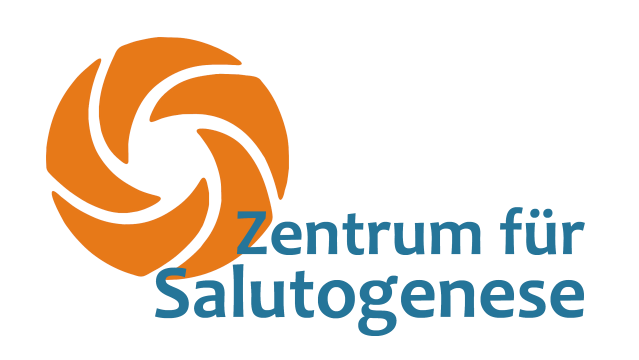SALKOM® COACH/THERAPIST training
Building on the consultant training, this training focuses on psychodynamically and systemically effective communication skills (see curriculum).
The basis is the psychodynamics of healthy development as developed by TD Petzold (Petzold 2022a).
The advanced training to become a SalKom® Coach or SalKom® Therapist (if a state-recognized therapy qualification is held) comprises six weekend courses (C1-6) or three 5-day courses (C1-CIII). As a SalKom® Coach/Therapist (depending on your profession), you should be able to resolve and expand psychodynamically effective communication patterns, including those adopted systemically, in a salutogenic way in your therapies or consultations.
All modules of the advanced training program are accredited with continuing education credits by the Medical Association of Lower Saxony.
To complete the advanced training and obtain the SalKom® Coach/Therapist certificate, in addition to the seminars, an individual consultation with the trainer (Th. D. Petzold), a group supervision session, five written-oral case supervisions, five live supervisions, and a written final paper on salutogenic communication and psychodynamics are required. Each of the six modules is a self-contained unit and can be taken in any order.
SALKOM® COACH/THERAPIST training
Line
Dr. med. Theodor Dierk Petzold
Entry requirement
SalKom® therapists receive state-approved therapy training.
Diploma
SALKOM® COACH/THERAPIST
Services
- 6 weekend seminars
- 5 live supervision sessions in individual settings
- 5 Fall Supervision
- Discussion of the final thesis
- Scripts for each unit
- certificate
Course fee
Training to become a SalKom® coach/therapist
3.280,00 €*
(including room rental and snacks)
*Ask about our different payment options.
A cancellation fee of €20 will be charged for cancellations made up to two weeks before the start of the seminar.
then 30% of the seminar fee.
Notice
Funding via education vouchers is possible.
All modules of the advanced training program are awarded continuing education credits.
Accredited by the Medical Association of Lower Saxony.
To register
See the schedule overview
IN-PERSON EVENT
C1 Advanced Training Salutogenic Communication
Self - Dimensions
Salutogenic psychodynamics of need communication in ego dimensions
Individual healthy development in ego dimensions – systemic and neuropsychological perspectives; 1st and 2nd ego dimensions, motivational attitudes and relationship patterns; 3rd and 4th ego dimensions; pattern formation for cooperation – the basis of development and cultural evolution;
Imagined dialogues: Externalizing internalized patterns to learn new communication patterns at a point of psychodynamic influence – role of the consultant;
Meditation as a special form of communication; training of the inner observer
IN-PERSON EVENT
C2 Systemic Interventions
Coherence in systems, intentionality and cooperation, fairness and communication
Relationship patterns in different systems, including transgenerational ones.
inherited; among other things, resolving loyalty conflicts
Resonances and 'system points'
Internal images, the "inner team", neural representation of important reference persons
Transference/countertransference as systemic resonance phenomena in the therapeutic relationship – the coach/therapist as an active resonator
C3 Communication in Coherence Transitions
The neuro-motivational 'coherence system' and motivational hierarchies – attractives in multiple life dimensions as guiding principles in transitions
Formative experiences surrounding birth – reenactment of birth – the transition into life
Mastering biographical coherence transitions through new communication possibilities
Coherence transitions during illness and recovery
Social and cultural coherence transitions – life in language is far removed from deep needs
IN-PERSON EVENT
C4 Trauma processing and other solutions from the power-victim triangle relationship pattern)
The neuro-motivational ‘coherence system’ and motivational hierarchies – attractives in multiple life dimensions as guiding principles in transitions.
Formative experiences surrounding birth – reenactment of birth – the transition into life.
Mastering biographical coherence transitions through new communication possibilities.
Coherence transitions during illness and recovery.
Social and cultural coherence transitions – life in language is far removed from deep needs.
C5 Paradoxes, humor and resolving ambivalence conflicts
The emergence of double binds and paradoxes in experience.
Resolving inhibiting regulatory patterns that have arisen through communicatively created double binds – resolving approach/avoidance conflicts with aids to imagination.
Paradoxical interventions on a cooperative basis.
The meaning and use of humor in the therapeutic process.
Developing one's own resources / a meta-perspective for practical work.
IN-PERSON EVENT
C6 Symptom management in so-called chronic diseases
Prolonged stress (often involving experiences of power/victimhood) promotes 'chronic' illnesses and requires reflection and the development of autonomy.
The healing, guiding information about symptoms – communicative stimulation of self-healing in protracted (‘chronic’) illnesses (physical, emotional, mental, spiritual).
The resolution of victim-perpetrator-rescuer/judge relationships in cases of protracted illness.
Salutogenic change of hindering / stressful communication patterns / structures in teams and institutions.
Salutogenic design of language and other cultural sign systems.




